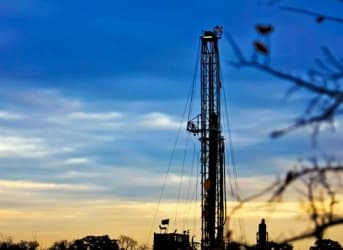I would hazard a guess that most people in the developed world are now aware of what hydraulic fracturing, or “fracking,” is. For those who aren’t, it is a technique used to extract oil and gas from previously inaccessible underground shale (rock) formations.
Fracking has had profound effects on the energy industry, so far mostly in the U.S., where it has created oil and gas booms in non-traditional places, moved the country closer to energy independence, and resulted in a huge reduction in the cost of energy, particularly natural gas.
It is, however, not without controversy. Environmental groups worry that we don’t know the possible effects of chemicals used in the process, and that contamination of the water supply could cause major environmental problems at some point in the future. Breaking up subterranean rock formations just sounds like a harmful thing to do and many believe that earthquakes have been or will be caused.
I have no interest in taking sides in the debate, but any debate benefits from knowledge, so here are 5 things that you may not know about fracking.
It isn’t new.
Hydraulic fracturing has risen to prominence over the last five or six years, but the technique itself has been around a lot longer. The first hydraulic fracturing experiment was conducted in Kansas in 1947. It was not successful, but a patent on the process was granted in 1949 and the licensed user of the technique, Halliburton Oil Well Cementing Company, began commercial operations later that year. Since then about 90 percent of U.S. wells have been fracked.
It mainly uses sand and water.
Environmental concerns about fracking center on the possibility of contamination by chemicals used in the process. This leads many people to believe that it is just a chemical cocktail that is being pumped into the ground. In fact, over 99 percent of what is pumped typically consists of sand and water. That doesn’t mean that contamination and environmental damage isn’t possible, but it may not be what you envisage.
Related Article: For Frac(k)'s Sake!
It makes your ice cream more expensive.
One component of the small percentage of fracking fluid that is not sand or water is guar gum. This natural product of the seeds of the guar plant is also used to improve the texture of ice cream. A chart of guar gum prices since 2000 looks like this:

Ice cream and other foods that utilize the product have seen significant increases in cost. For those of us with a sweet tooth, this alone may be reason enough to be wary of any more rapid expansion of fracking.
The biggest environmental threat could be from the amount of water used, not chemical contamination.
If the benign nature of guar gum and the small percentage of chemicals used in fracking fluid has you believing that the environmental concerns have been massively exaggerated, think again. Fracking just one well uses somewhere in the region of 3 to 8 million gallons of water. Using 2011 data, this article by Jesse Jenkins calculates that to mean that the amount of freshwater consumed by all the shale wells in the U.S. was about 0.3 percent of total U.S. freshwater consumption. That doesn’t sound like a lot, but in a world where water scarcity is becoming more of an issue it has to be considered as fracking use spreads.
It has uses beyond oil and gas.
Hydraulic fracturing of rock formations is not just used to extract oil and gas. It is also used to stimulate production from water wells, to enhance geothermal production of electricity and, most surprisingly of all, used by the EPA to clean up superfund sites.
Proponents and opponents of fracking will no doubt cherry pick from these lesser-known facts about the process to support their arguments. As I said, I have no interest in taking sides here. My only hope is that everybody who reads this will learn something that they didn’t know before. The debate will continue to rage, but the more informed that debate is, the better for all of us.
By Martin Tillier of OIlprice.com



















This enterprise will likely wind down before many suspect. I believe this is the bigger bouncing ball to watch -- bigger than salty or radioactive water that surfaces, and possible mild quakes.
So, I agree with the gist of the article -- that fracking is a lot more benign than you might think -- but there's a bigger picture. Our nation and the world have a whole lot of resource misallocation going on. The biggest companies and largest investments are in fossil fuel. In the US, that means fracking.
Why even bother? Let the record stand for what is already widely known - fracking is a terrifying method of extraction, causing irrepreble harm to the environment for short-term profits.
HUNDREDS of toxic chemicals are used in the fracking process.
The number of people affected is now in the millions. Watch Gasland and any number of documentary films the reveals the real horrifying truth about fracking.
This is a pathetic and shameful attempt to try and dismiss the hazards of fracking, CBM extraction and UCG.
All unconvential oil and gas extraction should be banned worldwide. IMMEDIATELY.
Anyone who swallows this article as the truth, you live in the areas being fracked, then tell me it's harmless
Fracking companies are very reluctant to disclose ingredients used in their cocktail.
If food companies can remain competitive and yet declare EVERY ingredient in their formulations on a food label, then frack companies should be able to live with the same requirement.
If we need to know what we put in our bodies, we also need to know what we put in the body of 'mother earth'.
Without Fracturing - all of these products and services would be much more expensive and we would be beholden to conflict oil coming from the middle east.
What do you prefer?